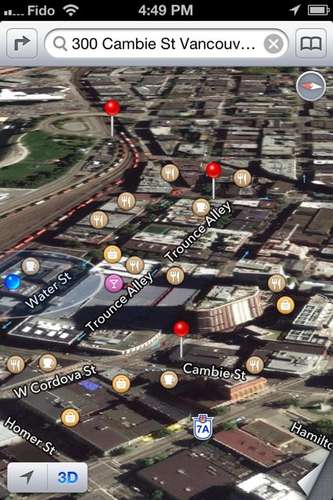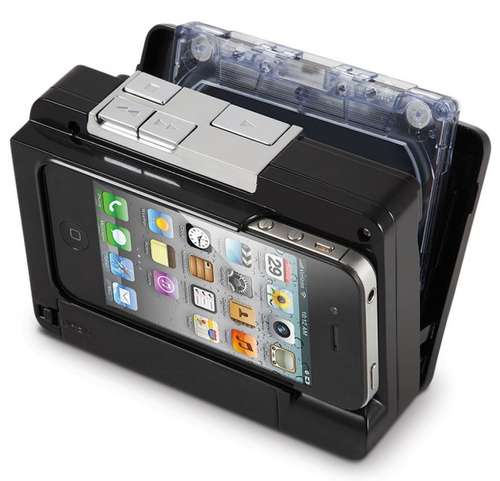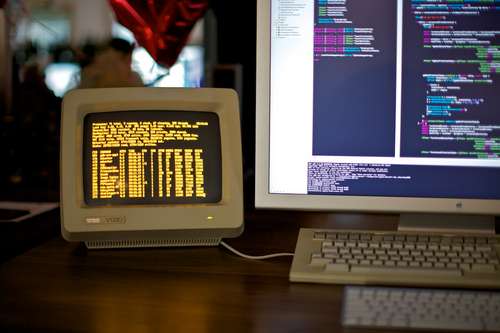Vanity Fair has a lengthly article on Microsoft's lost decade, that tries to pin down how the software giant fumbled its seemingly insurmountable lead in the tech industry. It's an interesting read, but more interesting to me is how wrong its fundamental premises are. And if you get your premises wrong, your conclusions are sure to be irrelevant.
The faulty premise is this: that Microsoft was once nimble and cool, and somehow lost their way.
How could a company that stands among the most cash-rich in the world, the onetime icon of cool that broke IBM's iron grip on the computer industry, have stumbled so badly in a race it was winning?
... While Microsoft was once the hippest company on earth...
...the Microsoft of old, the nimble player that captured the passions of a generation of techies and software engineers, is dead and gone...
...On August 24, 1995, Microsoft reached the pinnacle of cool, releasing what would then be its largest-selling operating system ever: Windows 95. Seeking to buy the first copies, computer geeks lined up at midnight around the block outside technology stores...
Here's the thing: Microsoft was never cool. And once they grew beyond about 20 employees, they were never nimble.
- In the 1970s they wrote BASIC interpreters. Interesting to geeks, but not cool, unless you were an electrical engineer who was getting tired of flipping bit switches to enter your assembler code.
- In the 1980s they bought a 2nd-rate OS and convinced IBM to bundle it with the new IBM PC. Great business savvy, but you have to be pretty socially maladapted to think that DOS was cool.
- In the 1990s they struggled to bring a GUI to the the PC, when every other major computing platform already had one since the mid-1980s. Not cool, and especially not nimble. They also sold a lot of business software. Great stuff, but not cool, unless you're an accountant. They thought the Internet was not important or interesting. This was definitely not cool of them, and it's almost shocking in its lack of nimbleness. When they realized how colossal their error was, they used their monopoly power to gut their competition, and cripple the Internet with buggy, insecure, proprietary technologies. Quite possibly the least cool, least nimble thing ever done in the history of computing.
- In the 2000s they enabled cyber crime as we know it today, with their insecure, buggy operating system that they didn't seem to know how to fix. Cooler companies were succeeding on the Internet, so they sunk billions into that, but lost money. Cooler companies were succeeding in video games, so they sunk billions into that, but lost money. Cooler companies were succeeding in online music, so they sunk billions into that, but lost money. It was pretty clear that people doing cool things didn't want Microsoft stuff. But at least they continued to sell lots of spreadsheet software.
- In the 2010s people with a weak grasp of computing history started to wonder when Microsoft lost their cool. Ahem.
Now, it has to be said that cool things were happening in computing all this time, and Microsoft, as one of the big players in computing, was involved. But Microsoft wasn't really doing the cool things. Mostly they were just fucking things up when cool things happened around them.
From 1975 until 1990, the really cool thing that was happening was the personal computer. It was cool thanks to Apple, who brought out the first really popular, hackable personal computer. It was also cool thanks to IBM, who copied Apple's design philosophy, but made it much more powerful. And lastly, it was cool thanks to Compaq, who reverse-engineered IBM's design, making this power cheap and affordable to the masses.
Cheap, hackable, democratic technology. That's cool. But it was also hardware, which had nothing to do with Microsoft. Bill Gates simply rode the coattails of the hardware revolution. He got his start by writing BASIC for the Altair 8800, and this led to Apple hiring Microsoft to write AppleSoft BASIC for the Apple ][+. Meanwhile, IBM was outsourcing their new IBM PC operating system, but the cool choice, CP/M, was turning out to be problematic. Rather than suffer through painful negotiations with Digital Research, IBM said 'fuck it' and asked Microsoft if they had anything to offer instead. Microsoft said yes, even though they didn't, and quickly went out and bought a 2nd-rate CP/M rip-off that they licensed to IBM. Brilliant move on Bill Gates' part, and arguably nimble from a business perspective, but not exactly a cool or innovative technology.
When Compaq reverse-engineered the IBM PC, they kick-started the clone market, driving costs down and performance up. And because of the IBM deal, MS-DOS had lucked into becoming the industry-standard default OS on these cheap, ubiquitous computers. Money started to pour in, and Microsoft accidentally found themselves in the leadership role that was supposed to be IBM's. And as a result, they started to take credit for the PC revolution, in their own minds.
Meanwhile the actual cool kids were working on the next great thing: graphical user interfaces. By 1984, everyone else had one. Apple had the Lisa in 1983 and the Mac in 1984, Sun had Sunview in 1983, and Unix had X-windows in 1984. Microsoft was not only late to the game, releasing Windows 1.0 in 1985, but unlike the others it was basically an unusable piece of shit, little better than a technology demo. Nobody used it. They didn't use version 2.0 either. Version 3.0 actually worked, but it wasn't actually useful until 3.1, released in 1992, 7 years late. Microsoft continued to struggle to catch up with the cool kids, and finally achieved a kind of parity with the release of Windows 95, ten years after entering the GUI game. Not nimble. Not cool. But desperately needed by PC users everywhere, who did in fact line up around the block to get their copies. Windows 95 was immensely popular because in 1995 GUIs were no longer cool—they were necessary.
In fact, by 1995 the cool kids had all moved on to a new area: the Internet. Microsoft was so busy trying to address its lack of cool from the 1980s that they didn't even see this one coming. Bill Gates famously dismissed the Internet when people complained that it was a major weakness in Windows 95. And when new companies like Netscape popped up to take advantage of Microsoft's pig-headed sloth, Microsoft crushed them mercilessly with their monopoly power, setting the entire industry back years. By the late 1990s it was already clear that Microsoft was the new Bell Telephone, monstrous, sluggish, domineering, and uninterested in technical innovation.
In 2001, Microsoft achieved final victory in the browser wars with its release of IE6, one of the greatest blights on computing that the world has ever seen. It not only set the world back years in technological terms, but also enabled the entire modern world of cybercrime with its appalling lack of security.
But it didn't matter, because the cool kids had already moved on. The Internet revolution was not really happening in the browser, after all. It was happening on the Internet itself. And by 2001 it had been going on long enough to actually create, inflate, and then pop its own economic bubble. Once again Microsoft belatedly blundered into this new technological arena, this time using their massive war chest to buy relevance, first by copying AOL, then by copying Yahoo, and then by copying Google. The only result so far is that Microsoft has lost billions of dollars.
And now here we are today. Mobile technology is the newest playground for the cool kids. Apple has reinvented itself as the dominant player in this marketplace, and Google has asserted itself as the mass-market brand. And what is Microsoft doing? 5 years after the debut of the iPhone, 4 years after the debut of Android, Microsoft has decided that it should go into mobile, big time. Sound familiar?
So no, Microsoft was never cool or nimble. The historical evidence shows that it is one of the most slothful and intransigent companies in the whole technology sector. Vanity Fair asks how Microsoft will get its mojo back. But it never had mojo, there is no mojo in its DNA, and any attempt to get it back will be grasping at phantoms, wishful fantasies about an innovative, pioneering Microsoft that never existed.



